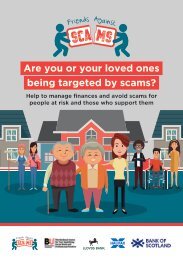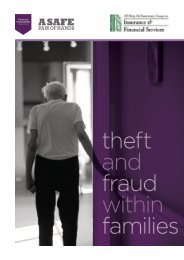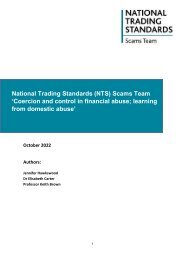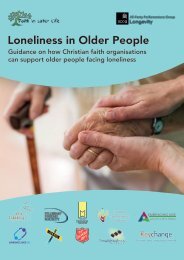Cyber Fraud and Scamming
This booklet focuses specifically on fraud and scamming; however cybercrime acts as a wider umbrella term, encompassing a range of criminal activity. Cybercrime can be simply defined as criminal activities carried out via the use of electronic devices, the internet and other forms of information and communications technology. The increasing use of computers and smartphones has facilitated a growth in the use of these systems as enablers of all types of crime, including: economic related cybercrime; organised crime; malicious and offensive communications; cyber stalking and harassment; and cyber terrorism.
This booklet focuses specifically on fraud and scamming; however cybercrime acts as a wider umbrella term, encompassing a range of criminal activity. Cybercrime can be simply defined as criminal activities carried out via the use of electronic devices, the internet and other forms of information and communications technology. The increasing use of computers and smartphones has facilitated a growth in the use of these systems as enablers of all types of crime, including: economic related cybercrime; organised crime; malicious and offensive communications; cyber stalking and harassment; and cyber terrorism.
Create successful ePaper yourself
Turn your PDF publications into a flip-book with our unique Google optimized e-Paper software.
Who is at risk?<br />
Everyone! <strong>Fraud</strong>sters target different age<br />
groups depending on the type of fraud. Cifas<br />
(2018) reported that criminals target younger<br />
people to become money mules, which are<br />
individuals who allow their bank account to<br />
be used to move the proceeds of crime. Over<br />
32,000 mule accounts were identified in<br />
2017, which was an increase of 11% from the<br />
previous year, <strong>and</strong> 71% of which were held by<br />
males. However, individuals over the age of<br />
60 were most likely to be victims of account<br />
takeovers, whilst individuals between the<br />
ages of 31 <strong>and</strong> 60 saw a higher occurrence of<br />
impersonation.<br />
For further information, please see The<br />
<strong>Fraud</strong>scape (Cifas, 2018).<br />
<strong>Fraud</strong> against older people<br />
Factors associated with older age such as bereavement, cognitive impairment, social isolation <strong>and</strong><br />
poverty can increase susceptibility to responding to scam approaches (Age UK, 2015). In addition, the<br />
increasing use of the internet <strong>and</strong> e-communications has provided criminals with a new way to target<br />
a global audience (Chang, 2008). Between 2016 <strong>and</strong> 2017, the top 4 types of fraud affecting the 60-99<br />
age group were computer software service fraud, advance fee frauds, online shopping <strong>and</strong> auctions<br />
<strong>and</strong> computer virus/malware/spyware. These figures demonstrate particular vulnerabilities for this age<br />
group relating to cyber scamming.<br />
Loneliness <strong>and</strong> social isolation have been identified as contributory factors to susceptibility to scams<br />
<strong>and</strong> fraud, with socially isolated older adults being particularly susceptible to financial scamming<br />
(Lubben et al. 2015). However, loneliness <strong>and</strong> social isolation are not exclusive to older adults, as<br />
individuals of any age who do not have a social network may have a limited awareness of scams <strong>and</strong><br />
there may be fewer opportunities for other people to notice, identify or intercept scams.<br />
You do not need to be socially isolated to be a target of cyber scammers. Action <strong>Fraud</strong> recorded an<br />
overall rise in computer misuse, particularly in respect to hacking via the use of social media <strong>and</strong> email,<br />
which has increased by 35%, with 9,458 offences reported over the previous 12 months.<br />
Anyone who is online<br />
has the potential to<br />
fall victim to cyber<br />
scamming! The vast<br />
majority of us are<br />
online in one way or<br />
another <strong>and</strong> therefore a<br />
potential target.
















